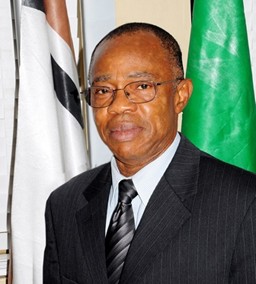Energy
Manufacturers lament huge drop in investment
JULIUS JOHN
These are obviously not the best of times for the manufacturing sector in Nigeria as new investments in different areas of the sector went down massively by N1.31 trillion.
In the recent economic review released by the Manufacturers Association of Nigeria (MAN), investments in the ten broad industries of the manufacturing sector nosedived from N2.07 trillion in 2013 to N691.81 billion in 2014, representing a 65.4 percent drop.
The new investments were made in land and building, plants and machinery, furniture and equipment, motor vehicle and in assets under construction, MAN says.
Two key factors responsible for this crash are a continuing tougher investment environment and the fever characterizing the 2014 general election, which pulled back investors from the economy.
“Interestingly, the decline in manufacturing investment is quite explainable as 2014 was prelude to an election year, which heated in the second half,” says MAN.
“Investors were cautious in committing to more investments as they awaited the outcome of the election,” MAN adds.
The year 2014 was characterized by higher production costs resulting from worsening power outages, high cost of fund, averaging 23 percent and a multiplicity of taxes.
One big issue that has become even bigger is the issue of insecurity in the North-East which has caused many manufacturers within that region to shut down operations and as a result, grossly affected the manufacturing industry in the country.
Another issue that manufacturers have bemoaned is the issue of high cost of doing business in Nigeria. According to some manufacturers who spoke to Hallmark, the high cost of doing business in the country is making the country not investment friendly.
“The high cost of doing business in Nigeria has put local manufacturers at a comparative disadvantage and further reduced their capacity to produce for local consumption and exports. We pray that government should address this issue and fast-track the process, in order to make Nigerian products more competitive,” said Frank Udemba Jacobs, president, MAN, in an industrial blueprint.
Sourcing raw materials was also a big challenge, as manufacturers scrambled for foreign exchange with which to import raw materials. This, along with high port charges and gridlocks, raised production costs within the year.
MAN’s latest data show that manufacturers in the basic metal, iron and steel made the biggest investments, pumping N234.9 billion in 2014. But this was meagre, when compared with N1.06 trillion pumped by players in the group within 2013.
“The problem with this sector is mostly policy inconsistency. There are also so many manipulations at the ports. It is either the Customs does not actually understand government policy, or they have a different HS Code or something,” Oluyinka Kufile, chairman, Basic Metal, Iron and Steel Group of MAN, and CEO, Qualitec Industries Limited.”
Following the metal group is the chemical and pharmaceutical industry, which pumped N184.23 billion into the economy in 2014, as against N223.30 billion in 2013.
The year 2014 was particularly great for pharmaceuticals, as Evans Medical, Chi Pharmaceuticals and May& Baker obtained pre-qualifications from the World Health Organization (WHO) which now enables them to launch out in the international market.
“Our investment in the pharmaceutical industry in Nigeria currently stands at N300 billion,” said Okey Akpa, chairman, Pharmaceutical Manufacturers Group of MAN, in a recent statement.
Next is the food, beverage and tobacco, which invested N144.51 billion in 2014 as against N82.47 billion in 2013.
Despite the growth of the cement sector, its group, known as the non-metallic products sector, performed abysmally in terms of investment. The group, also incorporating ceramics and glass, pumped only N14.9 billion into the economy. This was insignificant, when compared with N328.70 billion made by the sector in 2014.
Despite the challenges confronting the textile, apparel and footwear manufacturers, they impressively pumped N12.42 billion into the economy, as against N5.29 billion in 2013.
More so, the auto policy had an impact on the motor vehicle and miscellaneous assembly group which invested N4.16 billion in 2014, from N2 billion pulled into the economy in 2013.
In a recent interview with Mr. Johnson Chukwu, the CEO of Cowry Asset Management Company, he revealed that the only way manufacturers in the country can survive this harsh economic environment is by the government rising up to the occasion and giving the economy a policy direction.
The President in his economic plan has to have a short term, medium term and long term initiatives to fulfill his campaign promises. One of the reasons why Nigeria remains underdeveloped the country still at the level of an agrarian economy; President Buhari must encourage the export of Nigerian products and strengthen the manufacturing sector. Though the initiation of a power sector reform is critical to the expansion of the manufacturing sector and it is amazing what would happen to the Nigerian economy if power is improved to support the manufacturing sector.
No doubt, the economic crisis have began to hit major manufacturing companies very hard and unless something drastic is done to salvage the situation, it will surely get worse.
The economic challenges befalling companies in Africa’s largest economy is biting harder as Honeywell Nigeria Plc, a major player in the fast moving consumable goods sector recorded a 66.56 percent drop in the year ended March 2015.
Profit was N1.12 billion in 2015 compared with N3.35 billion the previous year. Sales decreased 10.94 percent to N49.05 billion.
Industry players were expecting a weak performance from the company as insecurity in parts of the country and the tough operating environment makes it harder for firms to thrive.



